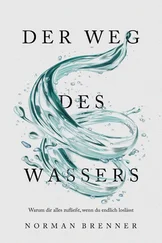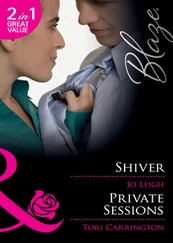I mentioned the ways subjects respond to profiles. I wrote a piece about Donald Trump in Vanity Fair in 1990, as Trump’s world seemed about to collapse. He was close to bankruptcy and had left his wife Ivana, moving to a separate apartment at the Trump Tower, where he was reportedly spending his day eating hamburgers and fries in front of a large TV. I have never written about Trump’s reaction to my reporting. Upset that I reported for Vanity Fair that he kept a copy of My New Order , Hitler’s speeches and pronouncements, by his bed, Trump went on a rampage, appearing with anchorwoman Barbara Walters in prime time to announce he was suing me. Of course he never did. Instead, for a decade, he attacked me as “an unattractive reporter with men issues” in the tabloids, and in his own book, Trump: The Art of the Comeback . I am happy to report that he described “After the Gold Rush” as “one of the worst stories ever written about me.”
And that brings us to the wine. Since 1991, the wine Trump may or not have poured down my dress—or over my head, in one Trump retelling—has changed color and amount depending on who recounts the tale. Trump told New Yorker writer Mark Singer that he threw red wine on me. Singer was gallant enough not to report whatever else he said.
Trump’s inability to tell the truth extended even to misstating his form of revenge on my reporting.
At a charity dinner, almost a year after my twelve-thousand-word story appeared, Trump slipped behind me as I sat with friends and took a half glass of white wine and poured it down my black jacket. I thought it was a waiter and did not flinch, but the faces at the table froze in horror. Trump scurried out the door, a coward’s coward, incapable of even facing me. I will never be able to express my gratitude for Trump’s remark to Mark Singer. That half glass of wine has become a badge of honor.
What was it that really angered Donald Trump in “After the Gold Rush”? The fact that he had grifted—among others—his close associate Louise Sunshine, who had to borrow $1 million from her friend the developer Leonard Stern to retain property rights in one of his buildings? Or that his children did not speak to him? The detail that stays with me occurred in the press room of the New York State Courthouse in lower Manhattan. Trump was fighting a brutal case brought against him by scores of Polish immigrant workers who allegedly had been paid under the minimum wage to build the Trump Tower. The tabloids had turned on Trump, accusing him of paying “slave wages,” exploiting the Polish workers. Trump settled, at a cost, it was said at the time, of millions of dollars. I made my way to the press room to hear my colleagues erupt in rage, at themselves and at the man to whom they had devoted so much ink. The babble in 1990 seemed definitive: “We made this monster. We gave him the headlines. We created him. Never again.”
¬
The piece I wrote about Marie Colvin—“A Private War”—has been made into a movie. In January of this year, I visited the set. It was snowing in England that day outside London. The movie A Private War was being directed by Matt Heineman, adapted from my piece. Heineman, just 34, had been nominated for an Oscar for his documentary Cartel Land , but had never made a feature. He had however directed a searing film— City of Ghosts— detailing the lives of several of Syria’s citizen reporters. He was galvanized by Marie’s career and for three years had worked tirelessly to bring her life story to the screen.
The newsroom of the Sunday Times of London had been meticulously re-created to look like the newsroom that Marie Colvin worked from. I was there to see the actress Rosamund Pike playing Colvin. On the day I visited, a pivotal scene was being filmed. Colvin was determined to get herself assigned to Sri Lanka in April of 2001 to cover a yet unreported scene of hundreds of thousands of refugees who were under siege by government forces. She had a shouting match with her editor in the newsroom. He wanted her to write about the leader of the PLO, Yasser Arafat; she insisted she would go to Sri Lanka. He was furious she had run up $56,000 in SAT phone charges. The Sri Lanka decision was catastrophic for Colvin: She would lose the sight in an eye to a grenade thrown at her when she announced she was a reporter and wear an eye patch for the rest of her life.
The afternoon I spent on the set was unnerving, as I knew what was coming for Colvin once she left the safety of the London newsroom. It was for me a time warp on many levels, not least of which was the atmosphere of the Sunday Times. Struggling as a freelance foreign correspondent in the London of the late 1970s, I had the immense good fortune to be befriended by the legendary Sunday Times editor Harold Evans, whose investigations into the horrors of thalidomide and the unmasking of the elite spies Kim Philby and Anthony Blunt inspired not only my reporting but also Colvin’s. Evans had fallen in love with a young writer, Tina Brown, and had brought her to dinner. “Use my telex room any time you want to send your copy,” Evans told me. “Just take the telex operator a bottle of scotch and tell them I said it was okay.” Evans was at the top of his game—the foreign correspondents of the Sunday Times were dispatched to every remote war in the world.
That night would begin a long and enduring friendship and two decades of reporting for Tina during her eventual tenure at Vanity Fair. Two of these stories—including “After the Gold Rush”—were written with Tina’s strong encouragement and editorial hand, Wayne Lawson’s sharpened red pencils and rigor enhanced every word I wrote for three decades at the magazine. Trying to close Trump, my fax machine blipped out all hours of the night with Tina’s notes. “Not there yet—” “What does——prove?” “You need more sources.” I tried to sleep but heard the beep of the fax machine until dawn. “Can you get more inside?” “Can you go deeper and more reflective? It needs more you.” She was right—and is responsible for the macabre final scene at the courthouse.
If you are lucky as a reporter, you get that kind of editing—and the ethical judgments that accompany it. In 1995, I returned to Vanity Fair from The New Yorker to write about the hypocrisy of CBS killing a 60 Minutes episode that featured a mysterious tobacco whistleblower—so as-yet-unknown that we called him Jeffrey “Wee-gand.” I had gone back to work at Vanity Fair at the gracious invitation of Graydon Carter, whom I had only briefly worked with before. At a lucky lunch with a close friend named Andrew Tobias, an anti-tobacco activist and later the Democratic National Committee treasurer, Andy quickly set me on the right course on the subject of Jeffrey Wigand. “It’s not about CBS. It’s about who is the whistleblower and what does he know?” he said. I took that back to Carter, who said, “Christ. Let me find out how much advertising we get from Brown & Williamson.” He came back the next day. “Go for it. It’s only $500,000.”
It took weeks to discover that “Wee-gand” was in fact pronounced “WY-gand,” and that he was being smeared by John Scanlon, a genial public relations man who had taken $1 million from Brown & Williamson to demolish Wigand’s reputation. Scanlon was a close friend of Carter’s as well as a Vanity Fair consultant. “I can’t go forward with this unless John is put on leave,” I told Carter, unsure of his reaction. He did not hesitate. “He is out as of now,” he said. Their friendship would never fully recover, but Carter did not change a word of the lengthy description of Scanlon and his machinations detailed in the eighteen-thousand-word “The Man Who Knew Too Much.”
Читать дальше












